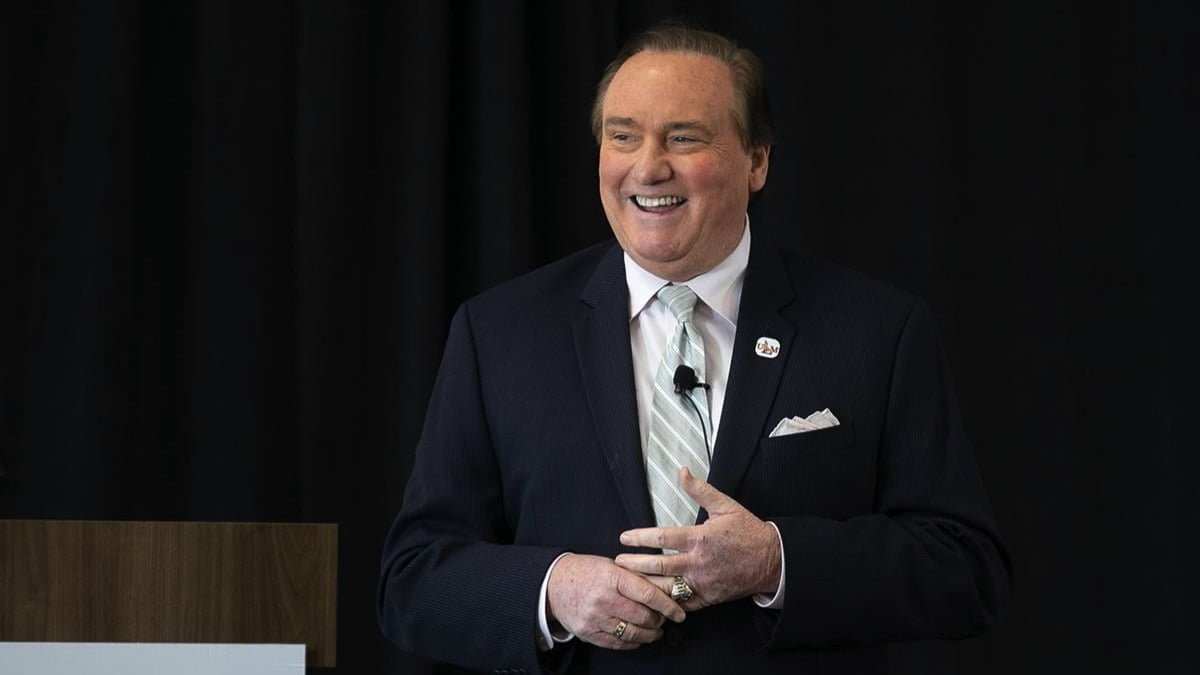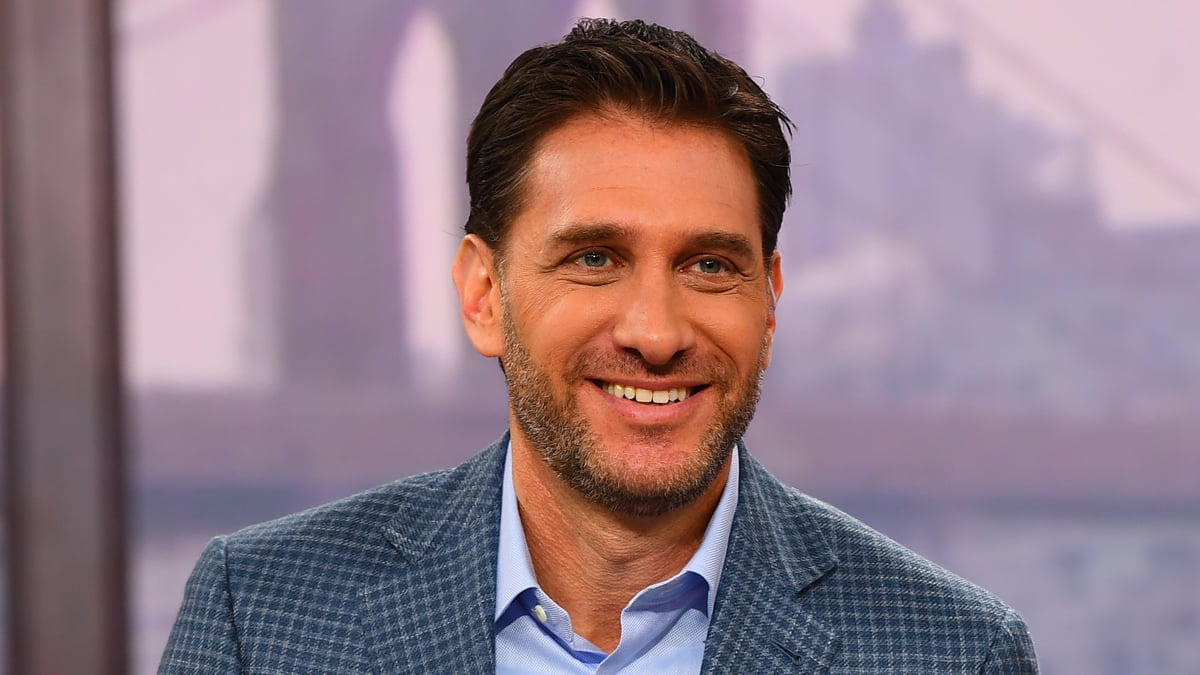J. Cole was not talking about conference commissioners in 2016 when he released the song “Everybody Dies”. On the track though, he raps a line that probably seems prophetic to George Kliavkoff and every network executive he has tried to get interested in doing a deal with the Pac-12.
“If they weren’t talking ’bout the bread, these motherf***ers be toast.”
The SEC and Big Ten are sitting pretty with the best media rights deals in college sports. Members of the ACC may not be completely satisfied, but the conference has security in a long-term deal with ESPN. The Big 12 got its new deal done last year.
The Pac-12? It kinda seems like that motherf***er be toast.
Welcome to 2023. College sports are not ruled by tradition or donor money anymore. All that matters is your conference’s TV deal. That is the source of the bulk of any program’s income. If your conference doesn’t have a great deal, you never close the door to a new opportunity. If your conference has no deal at all? It’s time to panic.
George Kliavkoff took over as commissioner of the Pac-12 from Larry Scott. Scott seemed like a savvy hire at the time, coming from the world of television rather than a career college sports administrator. He was supposed to revolutionize the conference and make it a media force for the future. What Larry Scott actually did was cement the Pac-12’s place firmly behind the eight ball.
He didn’t just eschew partnering with an established media company to launch the Pac-12 Networks, he actively repudiated the cable and satellite operators he needed on his side to make such a risky venture successful. He didn’t just waste money on real estate, he wasted so much money on some of the most expensive real estate in America. He turned what is called “The Conference of Champions” into the laughing stock of college football as one of the sport’s Tiffany programs, USC, withered into mediocrity.
How could things be any worse than that?
Well, the conference was about to find out. USC is still the conference’s most relevant media property. Los Angeles is still its most important market. A little over a year after Scott got the proverbial boot, USC bolted the Pac-12 for the Big Ten and took fellow LA resident UCLA along with it.
At the time, it seemed bad. I don’t know that we could have predicted how bad it actually was or what “bad” would look like. Other schools leaving would have made sense. Anyone in the media or that follows college football could have wrapped their heads around that. They had seen it before. But not finding anyone interested in paying for the remaining ten schools’ games? Yikes!
For years, we have known ESPN/ABC as the dominant player in the college sports world. FOX announced its presence in style with Big Noon Saturday a few years ago and really kicked the door down with its new Big Ten deal. CBS was in the game to a lesser extent but still was a player. NBC dabbled, but now with the help of the Big Ten, is increasing the size of its footprint.
We cannot say for sure that all of those networks rejected doing business with the Pac-12 entirely. We can say that they didn’t want to do business with the league at the price tag that they were presented. At this point, there may not be any shelf space for Pac-12 inventory even if the league swallowed its pride and offered broadcasters a big discount.
George Kliavkoff, who was hired last year, promised that not only would the Pac-12 have a TV deal. It would have a deal worth more than the ones FOX and ESPN put together for the Big 12, a league that not so secretly longs to poach more schools from the Pac-12.
Ummm…oops.
As the commissioner of the league, Kliavkoff cannot tell the industry that his product is not valuable. He cannot send signals that the entire value of the Pac-12 was wrapped up in USC, but he needed to set realistic expectations.
This is college sports, specifically football, which drives the bus for all other college sports. It’s not the MLS. Embracing new distribution models isn’t really what we do here.
The industry has rightfully snickered at the possibility that more than 50% of the conference’s inventory would be available exclusively on streaming services. It chuckled when names like Ion and The CW were mentioned as possible new homes for the conference and then downright guffawed when LIV Golf showed just how ill-equipped for sports coverage The CW really is.
Right now, the conference and its ten remaining members are hanging tough. University of Utah athletic director Mark Harlan even publicly called out a report from CBS’s Dennis Dodd that said the Big 12 is in contact with his school and three others about leaving the Pac-12.
But how long will that remain true? If Pac-12 games really are airing on Saturdays after twenty-year-old reruns of Everybody Loves Raymond and an infomercial for Rodent Sheriff, would schools like Utah and Oregon want to stick around? If Kliavkoff is banking his conference’s appeal in the market on Deion Sanders being at Colorado, does it really have broad appeal in the market?
Kliavkoff needs to get something done soon and it needs to be something that his member institutions recognize as valuable. There is no surpassing the Big 12’s paycheck at this point. Take what is being offered on a short-term deal.
Figure out how to start talking about the bread quicker next time or else motherf***er, you be toast.

Demetri Ravanos is a columnist and features writer for Barrett Media. He is also the creator of The Sports Podcast Festival, and a previous host on the Chewing Clock and Media Noise podcasts. He occasionally fills in on stations across the Carolinas in addition to hosting Panthers and College Football podcasts. His radio resume includes stops at WAVH and WZEW in Mobile, AL, WBPT in Birmingham, AL and WBBB, WPTK and WDNC in Raleigh, NC.
You can find him on Twitter @DemetriRavanos or reach him by email at DemetriTheGreek@gmail.com.









